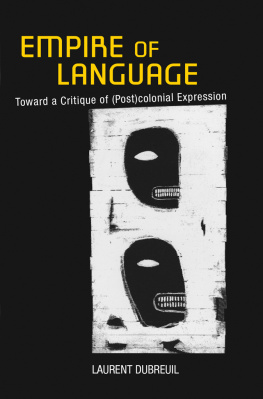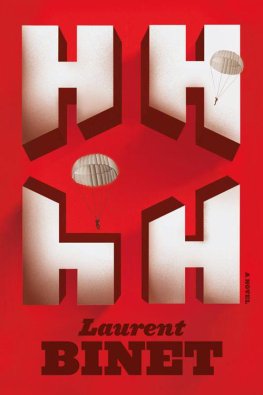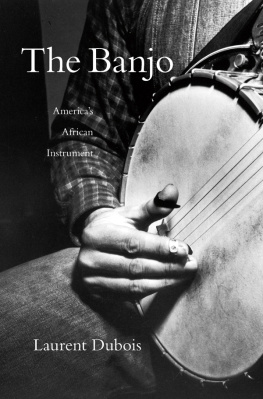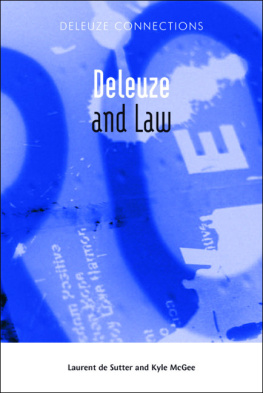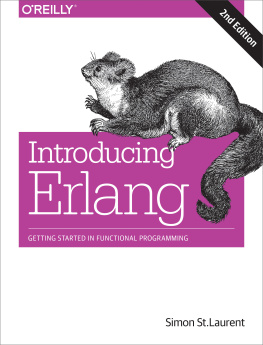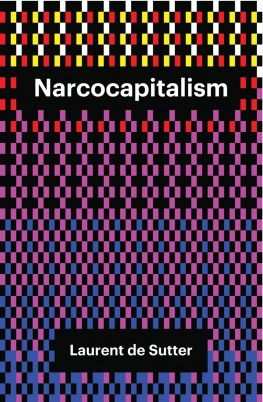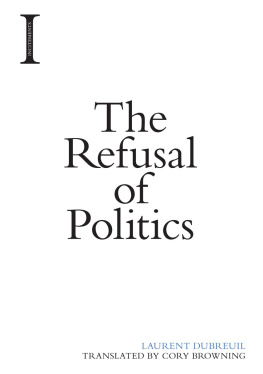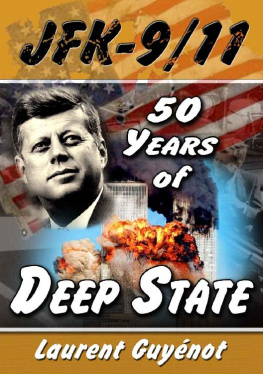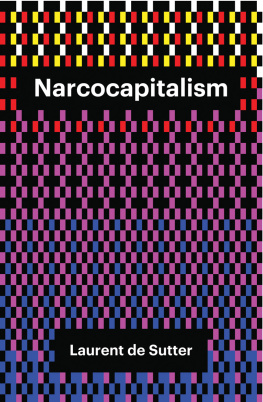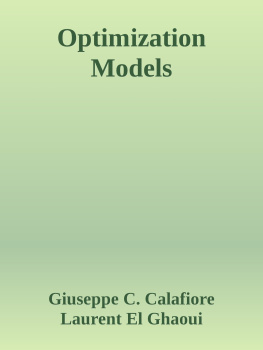Dubreuil Laurent - Empire of Language
Here you can read online Dubreuil Laurent - Empire of Language full text of the book (entire story) in english for free. Download pdf and epub, get meaning, cover and reviews about this ebook. publisher: Lightning Source Inc. (Tier 3), genre: Politics. Description of the work, (preface) as well as reviews are available. Best literature library LitArk.com created for fans of good reading and offers a wide selection of genres:
Romance novel
Science fiction
Adventure
Detective
Science
History
Home and family
Prose
Art
Politics
Computer
Non-fiction
Religion
Business
Children
Humor
Choose a favorite category and find really read worthwhile books. Enjoy immersion in the world of imagination, feel the emotions of the characters or learn something new for yourself, make an fascinating discovery.
- Book:Empire of Language
- Author:
- Publisher:Lightning Source Inc. (Tier 3)
- Genre:
- Rating:5 / 5
- Favourites:Add to favourites
- Your mark:
- 100
- 1
- 2
- 3
- 4
- 5
Empire of Language: summary, description and annotation
We offer to read an annotation, description, summary or preface (depends on what the author of the book "Empire of Language" wrote himself). If you haven't found the necessary information about the book — write in the comments, we will try to find it.
Empire of Language — read online for free the complete book (whole text) full work
Below is the text of the book, divided by pages. System saving the place of the last page read, allows you to conveniently read the book "Empire of Language" online for free, without having to search again every time where you left off. Put a bookmark, and you can go to the page where you finished reading at any time.
Font size:
Interval:
Bookmark:
Silence is so often eloquent. To not speak of the colony, to evoke it as little as possible, as happened for several decades in France, may entail the unremitting return of a jargon that has already been heard so many times. In public speech, in the clamor of the media, in language teaching, scholarly discourse, and literary texts, a postcolonial phrase still persists, with its own accents and syntax. So-called rational thought exploited the indigenes in order to write its own progressivist legend, giving them the poisoned gift of permanent possession, or of languages booby-trapped with a supplementary usage. In turn, a ready-made speech organized in advance the utterances and thoughts that occupy discourse all the more when one is unaware of them. This is why silence makes more noise than it thinks it does. One does not get rid of a social and political prescription by claiming to know nothing about it. In this case, the great, dominating parlance would become the sole forge of our language. In the contemporary space of thought, where linguistic anonymity was celebratedwhether collective or preindividualI might perhaps seem to be returning to an autonomous conception of the subject, or even to a certain romantic solipsism. It is not a good idea to insist too much on what one is not, which comes across as a deliberate denial; as for the attraction for something like the self, emphasizing that one has gotten rid of it can itself indicate a pose. Certainly, each speaker also speaks the language of others. Even literature mobilizes the statements and dictions that precede it. The problem lies in the difference of enunciation, and the form of the discourses that are recycled. I think that arranging anterior words and fragments allows at best for the emergence of a verbal singularity that modifies the ordinary. Even if one refuses to admit it, the question of a company of speech would nonetheless remain just as resonant. It is not only, or not exactly, language (le langage ) that speaks me, but rather usage, phrases , whose impact varies. Neither the linguistic argument of a common linguistic substratum nor the linguistic claim of a system that preexists the speaker regulates the interrogation of the provenance, the value, or the range of the elements utilized. No need, then, for a return to the absolute subject in order to worry about the materials that make thought possible. Examining (post)colonial usage allows one to situate regions and zones of discursive thought where one does not want to remain. It is up to each of us to find one or more voices that break the noxious harmony of social domination. Or not, if we want to submit to the side of power over others, in the wretched jouissance obtained by the force of general debasement. The price of this is steep, as we know in France: a disintegration of the plurality into the conflicting mini-mes of the grand political consummation. Nothing prevents us, however, from taking note of what we have read and said together. At most, critical knowledge liberates a few bold people. No ideal image of some immediately attractive good; just work, in the substrate of thought, through books, and on oneself, with its fatigue, which would make it seem less seductive, at least on the surface. Research, at least, needs an illusion: that whatever is valuable for a handful of people (and sometimes only for the author) is also valuable for the unknown reader. I still want to think and to live better; in this case, to identify all the instances when words seem to surpass my thinking but are in fact inscribing me in the illocutionary netherworld made of the coercive forms that I also am fighting. It is thus not only a question of understanding, but of producing, even partially, a way out of these closed fields. Likewise, this book at least testifies to an effort , that of freeing oneself from a phraseological colonization. Not only to analyze it, but to submit it to the test of writing in order to construct myself in a rupture with the patterns of nonthought. To those who would expect to find a symbolic cure, a palliative, within the problem of language, or a disregard for the struggles taking place at the more realist level of the sociohistorical, I would immediately return the compliment: in general, is not the quest for social recognition, whether in documentary or pecuniary form, a simple material compensation for a problem that persists in thought and discourse? Political society also plays a role in the ordering of words, and I sense a power and efficiency that are vaster here than in the so-called practical struggle. There is certainly no absolute emancipation in the latter, since any undertaking of this kind remains subordinated to the unitary concept of liberty in itself . It would nevertheless be strange to take advantage of this negation of emancipation for the benefit of total servitude, which could only rest on a relativity of forms of subjugation in order to function. To escape does not mean to be free, but neither is it nothing. This is called marronnage in the colonial context, where slaves would escape to all sorts of elsewheres. I would at least have attempted an analogous escape, to remove some of the colonial ballast from our words. It is an attempt that would at least be useful for others, who for their part might seek to break with the social order of language, to create in language the utopic condition for thinking that resists political prescriptions.
From this perspective, the colonial is to be considered as a linguistic event being associated with factual circumstances. By means of social sedimentation and the discourses we practice, we in the United States, France, and in territories now separated from empire, are equally disposed to live in and of the colony. This is one of our commonalities. Postcolonial studies therefore cannot concern itself only with the indigenes of yesterday or of todayunder penalty both of losing its constitutive meaning of domination and of navely repeating the separation of bodies imposed by the colonial powers. Similarly, political inversion (as in the revenge of the conquered), and the simplistic formation of a literary countercanon (in the name of a writing back), are two shortsighted tactics. So, too, for mtissage, which ultimately adorns itself only against the grain of a purism; one must still admit this fact, whereby mtissage celebrates the mixing of substances isolated in some historical yesteryear, then subscribes to the hybrid unity of the multiple, and finally considers everything as complementary colors and decorative alloys. The difficulty does not arise from the allocation of roles; it proceeds from the system of the partition itself. Finding a phrase of possession at work, in addition to this theoretical configuration, I push the logic further. Even as I have kept the disjunction that creates enchantment, I have explained how the effects of reciprocal haunting prevent us from simply breaking with it once and for all. No vocation, then; no nature, no frenzied destination. A black African or a white European is not called on to speak inasmuch as he is black or white. (Post)colonial usage and the tradition of indigenous critique are neither innate nor inexorable. On the other hand, yes, the structure of domination allows more play for those who are presented as the ones in power than it does for the others. In this sense, speakers put in the position of the indigene have to respond more quickly, more clearly to the parlance. I must insist, however, that there exists no automaticity between the referentiality of those speaking and the speed of their discourse, no reserved domain of (post)colonial studies.
We are numerous, those of us who can demand reparations through our language. In French, not only prefabricated maxims, sayings, and judgments, of course, but also laws of syntax, vocal inflections, and large sections of vocabulary are directly indebted to the experience of the colony. When education, media, treatises of all kinds, novels, evasive statements, laws, and political proclamations perpetuate both the phrase and the idiomatic usage that allowed for expansion, there is indeed much at stake in the colonial empire of language. Those of us who write in one of the languages exported to the colonies have the task of making the extraordinary resound, the job of crafting speech that breaks with the order of words. More specifically, literature is accustomed to these ruptures, which in actuality require the denunciation of programmed enunciation. Such is the source of my interest in the texts of Ralph Ellison, Hlne Cixous, Pierre Guyotat, and Gilbert Gratiant. The role of literature in our inquiry should not be surprising. There are, however, other possible singularities: ones personal distancing from daily babble, or critical deviation, for example. In any case, let us no longer be content with preestablished harmonies, any more than we are with mere disturbances or complicit silence.
Font size:
Interval:
Bookmark:
Similar books «Empire of Language»
Look at similar books to Empire of Language. We have selected literature similar in name and meaning in the hope of providing readers with more options to find new, interesting, not yet read works.
Discussion, reviews of the book Empire of Language and just readers' own opinions. Leave your comments, write what you think about the work, its meaning or the main characters. Specify what exactly you liked and what you didn't like, and why you think so.

